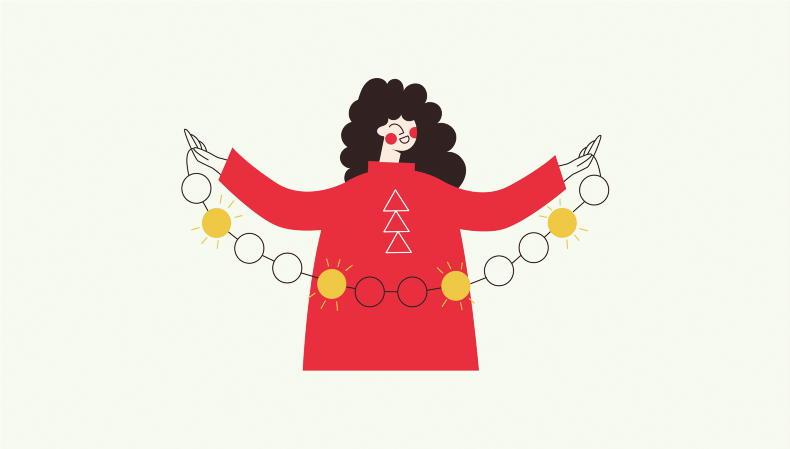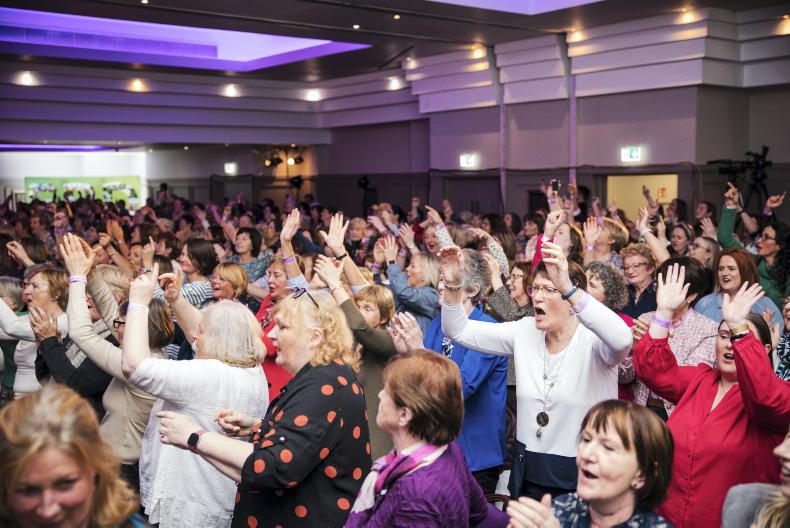Andy Williams sang about Christmas being “the most wonderful time of the year.” For many people, it is. They get to sit back and enjoy it for the most part while “somebody else” carries the burden of the preparations. While not the case in every household today, traditionally that “somebody else” has often been the woman of the house. For her, it can be a mixed bag of emotions ranging from the excitement of it all to sheer mental and physical exhaustion due to the amount of work involved in attempting to create the perfect family Christmas. For her, 25 December is not just about the celebrations; it is also a deadline for numerous boxes to be ticked off her “to-do” list on top of the normal everyday chores.
Pressure
Long ago, Christmas celebrations were simpler, and whilst the woman of the house bore the burden of ensuring everything went off well, there was less pressure, thanks mainly to the absence of TV and social media. Gradually, Christmas appears to have escalated to a very commercial and false sense of family celebration. There is such pressure to have it all so perfect. What we see on TV or on social media platforms does not depict reality. It is simply a way of brainwashing people into thinking they need X, Y and Z to have the perfect Christmas. In trying to meet all of these expectations, people put themselves under a lot of unnecessary pressure to get it all right, seeking validation of their worth by putting together the perfect Christmas for everyone at an extreme emotional cost to themselves.
One might wonder how it all has come to this? It would seem that a lot of men do not get as stressed about the Christmas season. It has become the norm for many to literally “keep out of the way” while the house is being spring cleaned and all the other Christmas chores are being done. Our world view is formed by the time we reach five years of age, and whatever we witnessed in those formative years became the norm for us. If our mother organised Christmas, this is what we believed to be normal and did not question it.
Choices
We have choices at Christmas as well as any other time of our life. If you are the one carrying the burden of Christmas in your home, know that you do not have to. Be honest with yourself. How can other family members help you? Are you inclined to keep control just in case something goes wrong? What would it be like to ask for help this year?
A good place to start is writing out a list of chores and asking for support. Be mindful of what you assign to each family member, ensure they are able to complete the various tasks. Your partner/spouse may not be into cooking, but perhaps they would enjoy giving the house a spring clean or go to the shops with a detailed shopping list and look after that aspect of Christmas for you. If you have teenagers in the house, then get them to help with the general chores. Be firm. It is not ok to expect you to do it all whilst they relish in the fun and enjoyment of Christmas. Love yourself enough to ensure you get to truly enjoy it too, and are not too exhausted to partake in the festivities.
The best of all gifts around any Christmas tree: the presence of a happy family all wrapped up in each other” (Burton Hills)
Occasionally, when we feel we are “doing all the work”, it is a good idea to stop and acknowledge the other jobs that your partner may be doing or indeed the children. I speak of non-Christmas chores that continue all the year around. Is he the fixer and fitter when there are leaks or something breaks down? Does he ensure that the timber/turf basket is always full? Who climbs up to the attic for all the Christmas decorations each year? Perhaps he maintains the exterior of the house. Are the teenagers generally helpful
with regard to basic chores? What we do on a regular basis can go unnoticed simply because we get so accustomed to it. Acknowledging the smaller items can help us feel less resentful and less inclined to be cranky if we seek more help and support at Christmas.
If there are smaller children in the home, try getting them to do little tasks like keeping their rooms tidy or fetching items from presses or the fridge for you. Because of the extra preparations involved in preparing for the Christmas dinner and all the trimmings, why not eat out on Christmas Eve, or order a take-away?
New traditions
What would it be like to create new traditions? Are you always the one to host your in-laws? Are you always the one expected to cook for extended family members? Remember, you have a choice. It is difficult to say no, but what is it costing you emotionally to keep saying yes? Do what feels right for you. Talk it over with your partner/spouse and explain how you are feeling. It is so easy to become a doormat at Christmas as well as other times of the year. Be the change you want to see in your world.
The twelfth day of Christmas is also referred to as Women’s Christmas and here in Ireland, Nollaig Na mBan. Traditionally, it was the day when women were allowed to sit back and rest and the men folk took over and did all the chores for the day. Women called to each other’s homes and enjoyed tea and chat and the last of the Christmas pickings. How nice it would be if Nollaig Na mBan was celebrated each day of Christmas, the same as Nollaig gach duine eile (Christmas for everybody else). You can do it!
Even with that extra help, you may find yourself experiencing anxiety as the festivities draw near. Here are some ways to help you cope and keep you calm and grounded.
MINDFULNESS
Take time out for you every single day. Focus on your breath at regular intervals. This is the first step in mindfulness-based practice. It helps us stay in the present moment, releasing all thoughts about the past and the future. It grounds us.
MEDITATE
Listen to a guided meditation each evening before you go to bed. It is a great way to unwind and let go of all that does not serve you.

RELAX
Dim the lights and light some candles in your living room. Lavender scented candles are good for relaxation. Incense sticks are also effective.
REACH OUT
Catch up with your friends, especially those who are also the chief organisers of Christmas in their own homes and chill out over a few coffees and a chat. Try not to take it too seriously. Life is for living, not merely existing. Christmas will come and go, same as every year.
GRATITUDE
If you find that you are inclined to compare yourself to others and how they are spending Christmas, start focusing on all that you do have and give thanks for it. Let gratitude be your attitude.
How we live our life is determined by our attitude. Attitude is about our thoughts. The late Bob Proctor described it as a composite of our thoughts, feelings and actions. Let your attitude be one of love and gratitude this Christmas. Love comes from our hearts, not from expensive presents or gourmet dinners.
Be happy. Be wrapped up in each other around the Christmas tree this year. The best gift we can give each other is the gift of our “presence”. Be there for each other. Listen, love, laugh, hug and enjoy the gift of this Christmas.
I wish you all a happy and peaceful Christmas and new year. Nollaig Shona daoibh go leir.
More info
Psychotherapist Claire Lyons Forde is based in Co Kerry and offers therapy in person, as well as online and over the phone. For further information, call 087- 939-9818.
Read more
Silent grief: the loss that dares not speak its name
Speaking up and out about the 'silent treatment'
Andy Williams sang about Christmas being “the most wonderful time of the year.” For many people, it is. They get to sit back and enjoy it for the most part while “somebody else” carries the burden of the preparations. While not the case in every household today, traditionally that “somebody else” has often been the woman of the house. For her, it can be a mixed bag of emotions ranging from the excitement of it all to sheer mental and physical exhaustion due to the amount of work involved in attempting to create the perfect family Christmas. For her, 25 December is not just about the celebrations; it is also a deadline for numerous boxes to be ticked off her “to-do” list on top of the normal everyday chores.
Pressure
Long ago, Christmas celebrations were simpler, and whilst the woman of the house bore the burden of ensuring everything went off well, there was less pressure, thanks mainly to the absence of TV and social media. Gradually, Christmas appears to have escalated to a very commercial and false sense of family celebration. There is such pressure to have it all so perfect. What we see on TV or on social media platforms does not depict reality. It is simply a way of brainwashing people into thinking they need X, Y and Z to have the perfect Christmas. In trying to meet all of these expectations, people put themselves under a lot of unnecessary pressure to get it all right, seeking validation of their worth by putting together the perfect Christmas for everyone at an extreme emotional cost to themselves.
One might wonder how it all has come to this? It would seem that a lot of men do not get as stressed about the Christmas season. It has become the norm for many to literally “keep out of the way” while the house is being spring cleaned and all the other Christmas chores are being done. Our world view is formed by the time we reach five years of age, and whatever we witnessed in those formative years became the norm for us. If our mother organised Christmas, this is what we believed to be normal and did not question it.
Choices
We have choices at Christmas as well as any other time of our life. If you are the one carrying the burden of Christmas in your home, know that you do not have to. Be honest with yourself. How can other family members help you? Are you inclined to keep control just in case something goes wrong? What would it be like to ask for help this year?
A good place to start is writing out a list of chores and asking for support. Be mindful of what you assign to each family member, ensure they are able to complete the various tasks. Your partner/spouse may not be into cooking, but perhaps they would enjoy giving the house a spring clean or go to the shops with a detailed shopping list and look after that aspect of Christmas for you. If you have teenagers in the house, then get them to help with the general chores. Be firm. It is not ok to expect you to do it all whilst they relish in the fun and enjoyment of Christmas. Love yourself enough to ensure you get to truly enjoy it too, and are not too exhausted to partake in the festivities.
The best of all gifts around any Christmas tree: the presence of a happy family all wrapped up in each other” (Burton Hills)
Occasionally, when we feel we are “doing all the work”, it is a good idea to stop and acknowledge the other jobs that your partner may be doing or indeed the children. I speak of non-Christmas chores that continue all the year around. Is he the fixer and fitter when there are leaks or something breaks down? Does he ensure that the timber/turf basket is always full? Who climbs up to the attic for all the Christmas decorations each year? Perhaps he maintains the exterior of the house. Are the teenagers generally helpful
with regard to basic chores? What we do on a regular basis can go unnoticed simply because we get so accustomed to it. Acknowledging the smaller items can help us feel less resentful and less inclined to be cranky if we seek more help and support at Christmas.
If there are smaller children in the home, try getting them to do little tasks like keeping their rooms tidy or fetching items from presses or the fridge for you. Because of the extra preparations involved in preparing for the Christmas dinner and all the trimmings, why not eat out on Christmas Eve, or order a take-away?
New traditions
What would it be like to create new traditions? Are you always the one to host your in-laws? Are you always the one expected to cook for extended family members? Remember, you have a choice. It is difficult to say no, but what is it costing you emotionally to keep saying yes? Do what feels right for you. Talk it over with your partner/spouse and explain how you are feeling. It is so easy to become a doormat at Christmas as well as other times of the year. Be the change you want to see in your world.
The twelfth day of Christmas is also referred to as Women’s Christmas and here in Ireland, Nollaig Na mBan. Traditionally, it was the day when women were allowed to sit back and rest and the men folk took over and did all the chores for the day. Women called to each other’s homes and enjoyed tea and chat and the last of the Christmas pickings. How nice it would be if Nollaig Na mBan was celebrated each day of Christmas, the same as Nollaig gach duine eile (Christmas for everybody else). You can do it!
Even with that extra help, you may find yourself experiencing anxiety as the festivities draw near. Here are some ways to help you cope and keep you calm and grounded.
MINDFULNESS
Take time out for you every single day. Focus on your breath at regular intervals. This is the first step in mindfulness-based practice. It helps us stay in the present moment, releasing all thoughts about the past and the future. It grounds us.
MEDITATE
Listen to a guided meditation each evening before you go to bed. It is a great way to unwind and let go of all that does not serve you.

RELAX
Dim the lights and light some candles in your living room. Lavender scented candles are good for relaxation. Incense sticks are also effective.
REACH OUT
Catch up with your friends, especially those who are also the chief organisers of Christmas in their own homes and chill out over a few coffees and a chat. Try not to take it too seriously. Life is for living, not merely existing. Christmas will come and go, same as every year.
GRATITUDE
If you find that you are inclined to compare yourself to others and how they are spending Christmas, start focusing on all that you do have and give thanks for it. Let gratitude be your attitude.
How we live our life is determined by our attitude. Attitude is about our thoughts. The late Bob Proctor described it as a composite of our thoughts, feelings and actions. Let your attitude be one of love and gratitude this Christmas. Love comes from our hearts, not from expensive presents or gourmet dinners.
Be happy. Be wrapped up in each other around the Christmas tree this year. The best gift we can give each other is the gift of our “presence”. Be there for each other. Listen, love, laugh, hug and enjoy the gift of this Christmas.
I wish you all a happy and peaceful Christmas and new year. Nollaig Shona daoibh go leir.
More info
Psychotherapist Claire Lyons Forde is based in Co Kerry and offers therapy in person, as well as online and over the phone. For further information, call 087- 939-9818.
Read more
Silent grief: the loss that dares not speak its name
Speaking up and out about the 'silent treatment'










SHARING OPTIONS